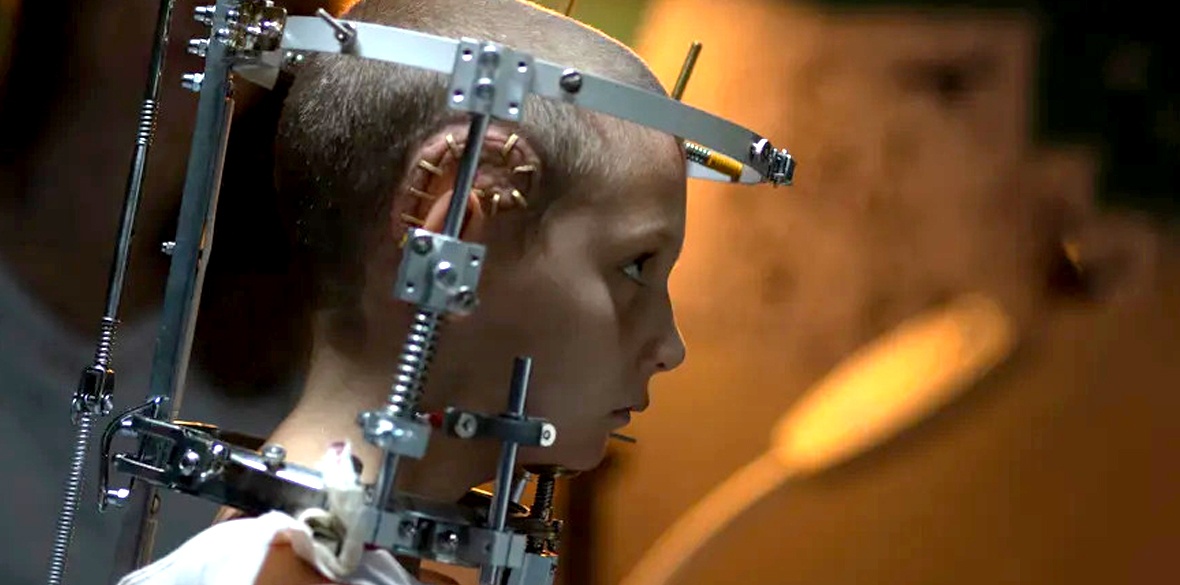This is the last article you can read this month
You can read more article this month
You can read more articles this month
Sorry your limit is up for this month
Reset on:
Please help support the Morning Star by subscribing here
THE Cannes jury, mainly women, awarded the Palme d’Or to Julia Ducournau’s Titane.
The film, the wildest in competition, is an inventive feminist cocktail about a young serial killer who has sex with a car, goes on the run, changes identity and poses as local boy who went missing a decade earlier.
Outrageous and deliberately shocking, it is only Ducournau’s second feature but it proves she is one of the most promising new voices to hit the international cinema scene in recent years.
The Grand Prix was shared between Iranian film-maker Asghar Farhadi’s A Hero, a tense drama about a man caught in a social media storm and Finnish director Juho Kuosmanen’s Compartment No. 6, a fascinating story of travelling companions bonding on a train ride from Moscow to Murmansk.
Leos Carax won best director prize for Annette, an intrepid and daring musical, about a stand-up comic and an opera singer whose love produces a weird child, Annette — a Pinocchio-like wooden puppet whose features are both innocent and inscrutable yet suddenly expressive.
Hamaguchi Ryusuke and Takamasa Oe’s Drive My Car, a superb adaptation of a Murakami short story, won best screenplay.
Origami-style, it combines ideas and emotion in a harmonious and perfectly balanced story of a theatre director who finds himself confiding in the young woman who has been hired as his driver.
Best actress went to Renate Reinsve as Julie in The Worst Person in the World, a dark Norwegian comedy by Joachim Trier.
It’s a sexy and funny story of a woman in search of love, while best actor went to Caleb Landry Jones for his performance in Australian director Justin Kurzel’s Nitram, a very unsettling film about the horrific Port Arthur massacre in Tasmania, 1996.
The jury prize was shared by Israeli Navad Lapid’s Ahed’s Knee, about a film-maker’s trip to a small desert town, and Thai director Apichatpong Weerasethakul’s Memoria, starring Tilda Swinton as an orchid farmer visiting her ill sister in Bogota, who becomes haunted by weird sounds.
This year’s British films played outside the competition and were mainly made by female directors. Joanna Hogg’s autobiographical The Souvenir Part II is a captivating self-portrait of the artist as a young woman, while Clio Barnard’s Ali & Eva is a deft love story, honest, realistic and wonderfully written and directed.
The festival was characterised by new film-makers breaking boundaries — despite Covid, global film is up and running.












